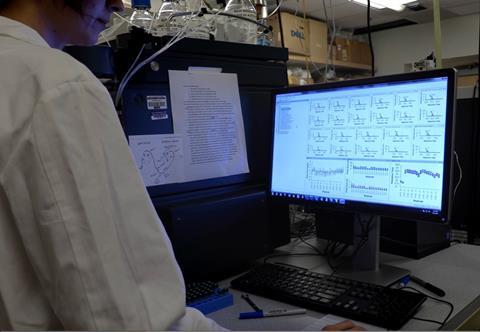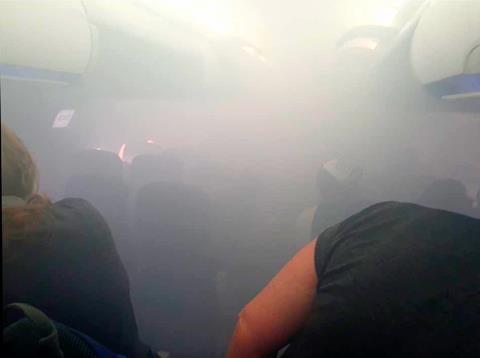When the 2024 Aircraft Cabin Air Conference closed last September in London, many left the event predicting significant new developments in the contaminated air on aircraft issue would emerge in 2025 and they were not wrong.

Last year, the preliminary findings of the EU funded and industry supported research into the topic, announced that mice exposed to heated engine oil decomposition products suffered no health effects. This week, a published paper from the University of Washington in Seattle, looking at humans exposed to the same oils and reporting health effects after exposures, showed specific protein decoration. The paper is the first paper from an ongoing research project funded by the military and unions to develop a blood test to confirm exposure. This new paper brings into question the EU industry supported research findings and confirms a definitive blood test to confirm exposure is not far from becoming reality for the travelling public and airline crews.
Cabin air on commercial aircraft comes from two sources – half from recirculated cabin air and half from “bleed air” from the compression section of the engine, what some in the industry refer to as “fresh air”. Today’s commercial aircraft have High Efficiency Particulate Air (HEPA) filter systems for the recirculated air, but there is no filtration for the “fresh air” component. The “fresh air” component of cabin air either comes from air bleed off the compressor stages of the engines or in the case of the Boeing 787 Dreamliner, from ram air coming from outside the aircraft. However, this “fresh air” could contain many contaminants including carbon monoxide (CO), carbon dioxide (CO₂), ozone (O₃), hydraulic fluids, engine oils, pyrolysis products, Volatile and Semi-Volatile Organic Compounds (SVOC/VOC) and particulates. In an aircraft Environment Control System (ECS), the removal of these contaminants is essential to prevent “fume events” and improve cabin air quality for the safety and well-being of flight crews and passengers.
The US company PTI Technologies has been involved in developing and producing cabin air filtration since the 1980s, when they first developed the Cabin Air Filtration (CAF) System for the B-2 program, and they continue to invest in special filter media and customized proprietary adsorbents to meet challenging customer requirements for air filtration.
Today, PTI Technologies has developed and is actively testing patented integrated filter technology to capture contaminants for ECS bleed air filtration handling flows up to 1,200 cfm and temperatures up to 500 °F (250 °C). PTI have completed their first prototype testing against various contaminants including toluene, engine oils, carbon monoxide, ozone and propylene glycol at various temperatures. With the results from these tests, the PTI team is now developing an updated design capable of high levels of contaminant and particulate removal. This updated design will provide long life, easy to maintain filtration for ECS bleed air capable of being installed in narrowbody aircraft, and it will be fully tested in the summer of 2025. The next step will be on-aircraft flight-testing. This technology could offer “fresh air” filtration for both new production and existing aircraft fleets, enhancing the safety and comfort of anyone who flies on a commercial aircraft.

Concerns about the ingredients in and decomposition products from, advanced synthetic jet engine oils, have been discussed for decades. It is widely expected that a new less hazardous jet engine oil could be announced as soon as the Paris air show next month.
The Global Cabin Air Quality Executive (GCAQE) that represents aircrew globally welcomes these new developments and says the filtering of the ‘bleed air’ and introducing less hazardous oils would be two significant steps forward. However, it calls for contaminated air warning systems to be installed on all aircraft to enhance flight safety and protect crew and public health. The British Air Accident Investigations Branch (AAIB) twice recommended to EASA and the FAA that all aircraft should have contaminated air warning systems over a decade ago and these are yet to be installed. The GCAQE argue the reason these have not been installed is because aircraft manufacturers are worried about the legal implications of what the sensors will reveal.
A new feature length investigative documentary film into the topic of contaminated air, ‘This is your Captain speaking’, is set to premiere at the 33rd Raindance Film Festival in Lonon on 23 June 2025.























